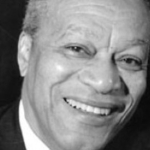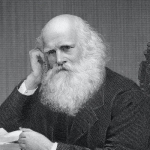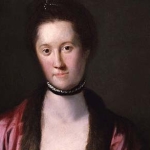En mi país el Otoño nace de una flor seca,
de algunos pajaros; . . .
o del vaho penetrante de ciertos rios de la llanura.
—Molinari, “Oda a una larga tristeza”
Each instant comes with a price, the blue-edged bill
on the draft of a bird almost incarnadine,
the shanked ochre of an inn that sits as still
as the beavertail cactus it guards (the fine
rose of that flower gone as bronze as sand),
the river's chalky white insistence as it
moves past the gray afternoon toward sunset.
Autumn feels the chill of a late summer lit
only by goldenrod and a misplaced strand
of blackberries; deplores all such sleight of hand;
turns sullen, selfish, envious, full of regret.
Someone more adept would mute its voice. The spill
of its truncated experience would shine
less bravely and, out of the dust and dunghill
of this existence (call it hope, in decline),
as here the blue light of autumn falls, command
what is left of exhilaration and fit
this season's unfolding to the alphabet
of turn and counterturn, all that implicit
arc of a heart searching for a place to stand.
Yet even that diminished voice can withstand
the currying of its spirit. Here lies—not yet.
If, and only if, the leafless rose he sees,
or thinks he sees, flowered a moment ago,
this endangered heart flows with the river that flees
the plain, and listens with eye raised to the slow
revelation of cloud, hoping to approve
himself, or to admonish the rose for slight
transgressions of the past, this the ecstatic
ethos, a logic that seems set to reprove
his facility with unsettling delight.
Autumn might be only desire, a Twelfth Night
gone awry, a gift almost too emphatic.
Logic in a faithful light somehow appeases
the rose, and stirs the hummingbird's vibrato.
By moving, I can stand where the light eases
me into the river's feathered arms, and, so,
with the heat of my devotion, again prove
devotion, if not this moment, pure, finite.
Autumn cradles me with idiomatic
certainty, leaves me nothing to disapprove.
the heart alone given power to recite
its faith, what a cradled life finds emblematic.




















Comment form: